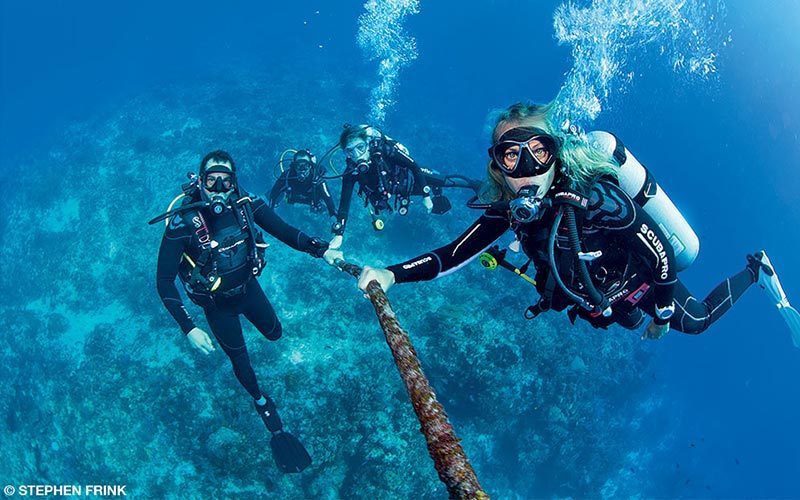Inert Gas Washout
DAN medics and researchers answer your questions about dive medicine.

DAN medics and researchers answer your questions about dive medicine.

Q: During dive training in the pool, I couldn’t breathe after clearing my mask with my regulator in my mouth. After surfacing, I took six to eight wheezing breaths and then […]

I RECENTLY UNDERWENT BRAIN SURGERY. The surgery was successful, but now part of my skull has been replaced with mesh. My neurosurgeon is brilliant but does not know how the […]

Your effort to relieve joint pain involves achieving neutral buoyancy, but that requires some physical exertion. Additionally, nr-axSpa often progresses into ankylosing spondylitis with inflammation where tendons, ligaments, or joint capsules enter the bone, which can lead to spinal fusion and reduced mobility.

YOUR QUESTIONS ANSWERED about Bipolar Disorder and diving, immersion pulmonary edema, and pain in teeth when diving.

© ISTOCK/ MPHILLIOS007 Q: I have been diagnosed with low platelets. Is it OK to dive? Before you dive, you and your doctor should consider some possible effects of having a […]

DAN medics and researchers answer your questions about dive medicine.

DAN medics and researchers answer your dive medical questions.

Q: I recently had an eye stroke. Can I still dive after it has been resolved? A: The main concerns with an eye stroke (central retinal artery occlusion, or CRAO) […]

DAN® medical information specialists and researchers answer your dive medicine questions.
